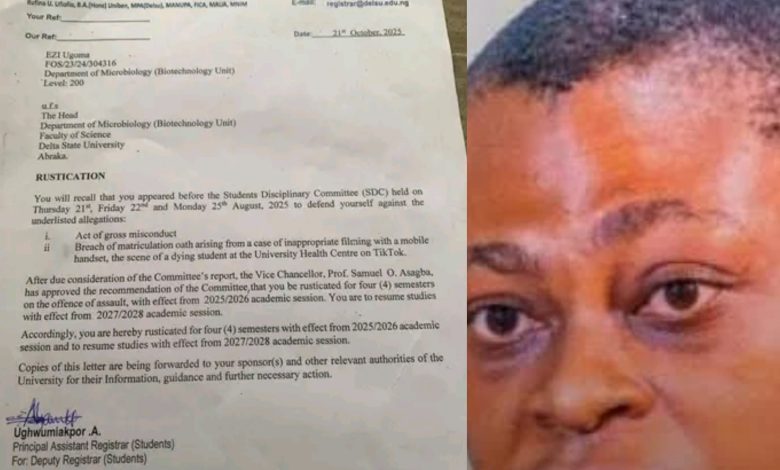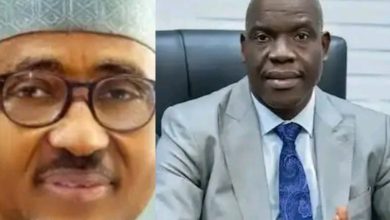Concern Grows Over Suspension of DELSU Student for Anti-Abortion TikTok Post

By Passman Akpos
A public appeal has been made to broadcaster and social commentator, Rufai Oseni, over the alleged suspension of a 300-level Biotechnology student of Delta State University (DELSU), Abraka, who was reportedly punished for posting a TikTok video advising young women not to engage in abortions.
In a letter addressed to Mr. Oseni, the sender described the suspension as “unjustifiable” and pleaded for his intervention to prevent what they called a grave injustice. The letter alleged that the university handed down a two-year suspension to the student simply because of the video she uploaded, which carried a caption discouraging abortion.
> “I’m writing to you this morning regarding an unjustifiable two-year suspension given to a 300-level Biotechnology student from Delta State University, Abraka, over a video that she uploaded on her TikTok account about girls not getting involved in abortions as clearly stated in her caption,” the message read in part.
According to the letter, both the video and the official suspension letter have been shared with the journalist. However, the writer expressed frustration that their own social media account had been restricted for 72 hours, preventing further communication.
The plea also revealed that the situation has worsened the student’s personal circumstances, as her stepfather allegedly ordered her to quit school permanently and return to their village following the disciplinary action.
> “Please sir, do not allow this injustice to stand as this young lady’s future is about to be shattered and cut short,” the writer appealed.
As of press time, Delta State University authorities have yet to issue an official statement on the matter. Efforts to verify the authenticity of the suspension letter and determine the circumstances surrounding the disciplinary action are ongoing.
The case has already begun to draw attention online, with many observers calling for a review of the university’s decision and urging respect for freedom of expression, particularly when exercised in a moral or non-offensive context.
If confirmed, the incident could raise broader concerns about students’ rights, digital expression, and moral advocacy within Nigerian tertiary institutions.





